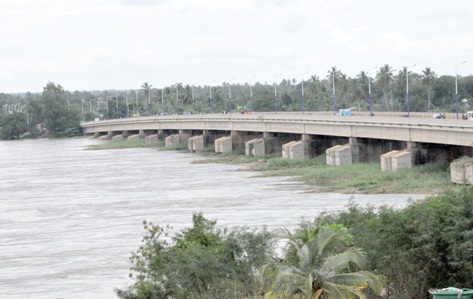
Addressing northern floods: Reducing vulnerabilities of rural dwellers
In the northern regions of Ghana, the recurring menace of floods has long been a source of anguish for its rural communities.
Advertisement
These vulnerable populations often bear the brunt of these natural disasters, which threaten lives, the environment, homes and livelihoods.
This article delves into the causes of these floods and explores strategies to reduce the vulnerabilities of rural dwellers in the face of these disasters.
Vulnerabilities
Rural areas in northern Ghana, marked by poverty and limited access to resources, face unique challenges in dealing with devastating floods.
These vulnerabilities are primarily linked to the region's climate, topography and socio-economic factors.
Northern Ghana has experienced erratic rainfall patterns, a symptom of climate change.
Prolonged dry spells are often followed by heavy rains, which the region's arid soils cannot absorb.
This climatic uncertainty leads to flash floods, exacerbating rural vulnerabilities.
Rural communities suffer from a lack of adequate infrastructure, such as proper drainage systems and sturdy housing.
This makes them more susceptible to the destructive forces of floods.
Rural dwellers often live in poverty, with limited access to resources for flood preparedness and recovery.
They lack insurance and depend heavily on subsistence agriculture, which is easily disrupted by flooding.
Inappropriate land use practices, including farming close to riverbanks and inadequate waste disposal, increase the risk of floods.
The absence of proper land management exacerbates the problem.
Reducing vulnerabilities
To address the vulnerability of rural dwellers in northern Ghana, a holistic approach is necessary.
This approach should encompass disaster preparedness, sustainable agriculture, infrastructure development, and community empowerment.
Implementing efficient early warning systems in rural areas is crucial.
These systems can provide timely information to communities, allowing them to evacuate or take necessary precautions when floods are imminent.
Investment in rural infrastructure, including well-planned drainage systems and resilient housing, is vital to protect communities from flooding.
Sustainable agriculture
Promoting sustainable farming practices, diversification of crops, and soil conservation methods can help rural communities reduce the risk of losing their livelihoods to floods.
Engaging rural communities in flood risk reduction and disaster management initiatives is crucial.
Training local community leaders and residents in disaster response can save lives and reduce losses.
Educational campaigns on climate change, proper land use, and waste management should be conducted to empower rural dwellers with knowledge and understanding of how to reduce vulnerabilities.
The Ghanaian government, in collaboration with international organisations, should provide financial and technical support to rural communities in the form of disaster relief and rehabilitation programmes.
Conclusion
Addressing the vulnerabilities of rural dwellers in the face of devastating floods in northern Ghana is a pressing issue that demands immediate action.
It requires a coordinated effort from government, local communities and their leadership and international partners.
By implementing early warning systems, improving infrastructure, promoting sustainable agriculture, empowering communities, and raising awareness, it is possible to reduce the impact of floods on rural populations.
Together, we can work towards a future where rural dwellers in northern Ghana are less vulnerable to the devastating effects of flooding and can build more resilient communities.
The writer is a PhD Student,
University for Development Studies,
Tamale, N/R.
E-mail: [email protected]



